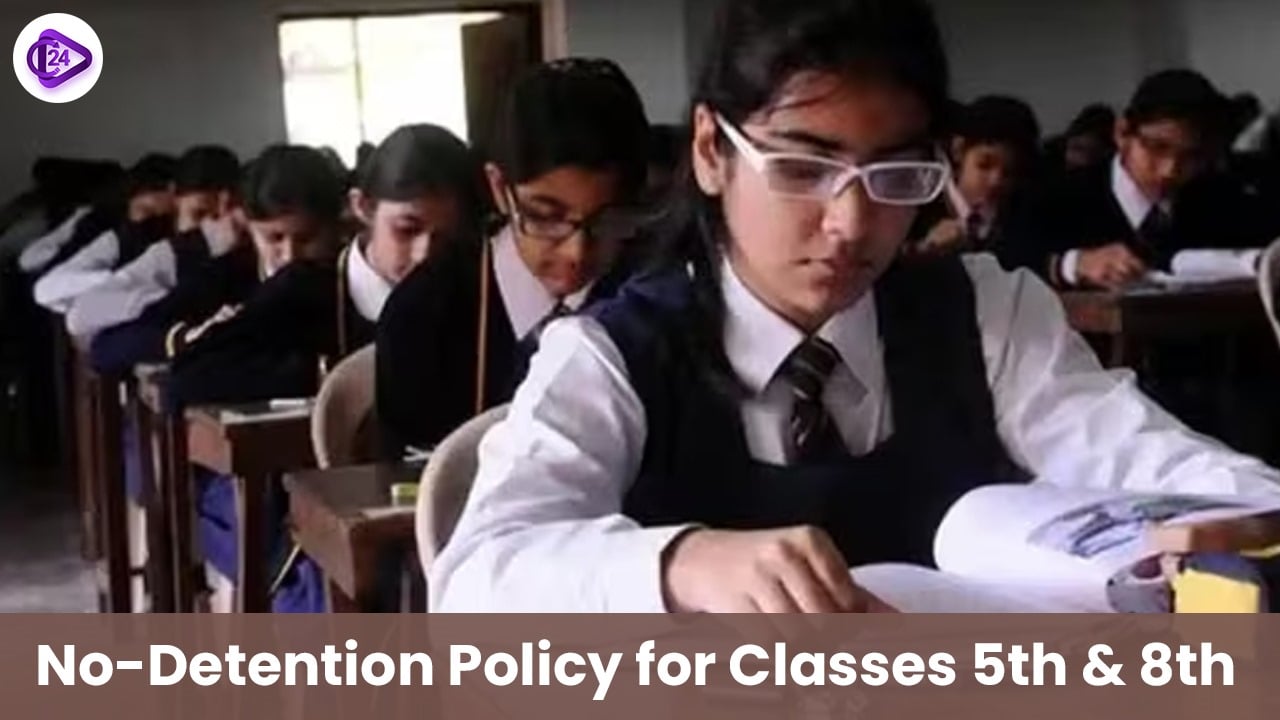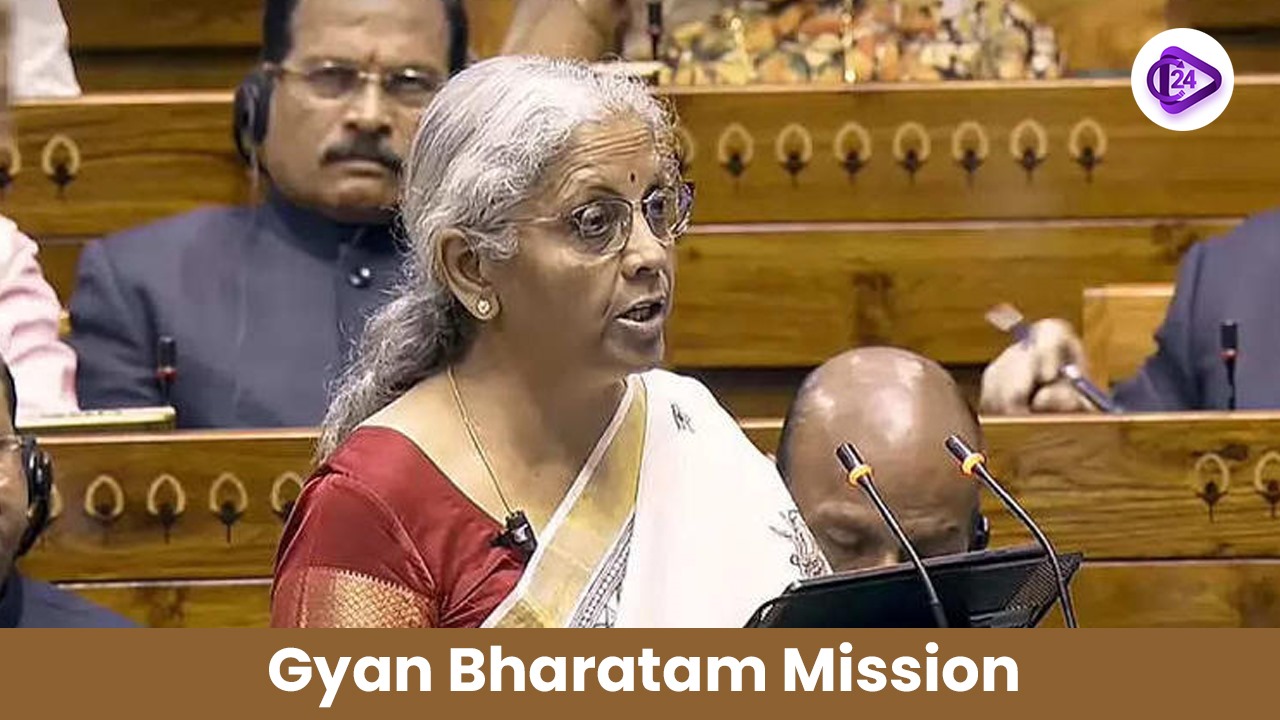
The Central Government has recently changed the Right to Education (Rte act 2009) where no-detention policy for classes 5th and 8th will no more be imposed to retain failed Students. This replace was within the December 2024 gazette after doing away with modifications from 2019 that allowed detention based mostly on efficiency. That is why the NEP, which was initially designed for the fighting dropouts policy and promotion guarantees, has been criticized for the prevalence of low learning results and school irresponsibility. The new assessment policies will see students who fail, complete some more teaching and also sit another exam. The policy change is in congruence with National Education Policy (NEP) 2020 to enhance the standard of education.
Changes in Right to Education Act – No Detention Policy Removal
-
Amendment to RTE Act: Earlier this year, the central government modified the Right to Education (RTE) Act 2009 by abolishing the no detensions policy (NDP) of schools which come under this act including Kendriya Vidyalayas, Jawahar Navodaya Vidyalayas, and schools affiliated to the Ministry of Defence and Tribal Affairs.
-
Policy Change: The Centre has also done away with the earlier issued “no-detention” policy for Classes 5 and 8, which meant that students could be held back if they fail end-term examinations.
-
Gazette Notification: The Ministry of Education through a gazette number on the 16 th December 2024 gazetted the Right of Children to Free and Compulsory Education (Amendment) Rules, 2024.
What is this No-Detention Policy?
-
The NDP, which was envisioned in the Section 16 of the RTE Act, 2009, banned the detention of students up to Class 8 to guarantee ME for every child.
-
The policy sought to make school progression automatic in order to stop children from dropping out of school.
Key Points
-
Re-examination Opportunity: To unsuccessful pupils, the teacher will conduct further lessons for the group and provide them with a chance for a retake after two months. In case they do not succeed, they will be retained an extra year in school.
-
Teacher and Parental Guidance: Those.students will get assistance from a class teacher and or parents while the students will have to trace their deficiencies through various tests administered.
-
At present, 14 states and Union Territories continue to implement NDP.
Reasons for Removal
-
Declining Learning Outcomes: As a pulic policy, it encouraged students to pay less seriousness to their studies, in the real sense knowing well that they could easily be promoted to the next class regardless.
-
Accountability Issues: Appeasing the HRD Ministry, schools did not accord strong enough emphasis towards enhancing learning results.
-
States Demand: A number of states asserted the need for displacement of the NDP in an effort to enhance quality and a–cent accountability in elementary education.
-
National Education Policy Alignment: It is synchronized with the National Education Policy (NEP) 2020, which comes with stress on better learning standards.
Conclusion
The change policy is good for India education system as it seeks to make the system more responsible and centre on purpose of educating learners. It will all depend on supporting measures and conditions required to help endangered students.




 Government Expands Support for Classical Languages in India
Government Expands Support for Classical Languages in India Guru Shishya Parampara Scheme Preserving India Traditional Arts
Guru Shishya Parampara Scheme Preserving India Traditional Arts Gyan Bharatam Mission 2025 Preserving India Manuscript Heritage
Gyan Bharatam Mission 2025 Preserving India Manuscript Heritage India Startup Revolution: Driving Innovation and Job Creation in 2024
India Startup Revolution: Driving Innovation and Job Creation in 2024 Empowering Tribes for a Viksit Bharat: Tribal Welfare Boost in Union Budget 2025
Empowering Tribes for a Viksit Bharat: Tribal Welfare Boost in Union Budget 2025 World Wetlands Day 2025 Celebrations at Parvati Arga Ramsar Site, Gonda, Uttar Pradesh
World Wetlands Day 2025 Celebrations at Parvati Arga Ramsar Site, Gonda, Uttar Pradesh India Marks World NTD Day 2025 with Landmark Illumination at India Gate to Raise Awareness
India Marks World NTD Day 2025 with Landmark Illumination at India Gate to Raise Awareness Delhi-Haryana Water Dispute Escalates Over Ammonia Pollution in the Yamuna River
Delhi-Haryana Water Dispute Escalates Over Ammonia Pollution in the Yamuna River Retinal Diseases: RNA Therapeutics Show Promise, But Is India Ready.
Retinal Diseases: RNA Therapeutics Show Promise, But Is India Ready. Uttarakhand Becomes the First State to Implement the Uniform Civil Code (UCC)
Uttarakhand Becomes the First State to Implement the Uniform Civil Code (UCC)






